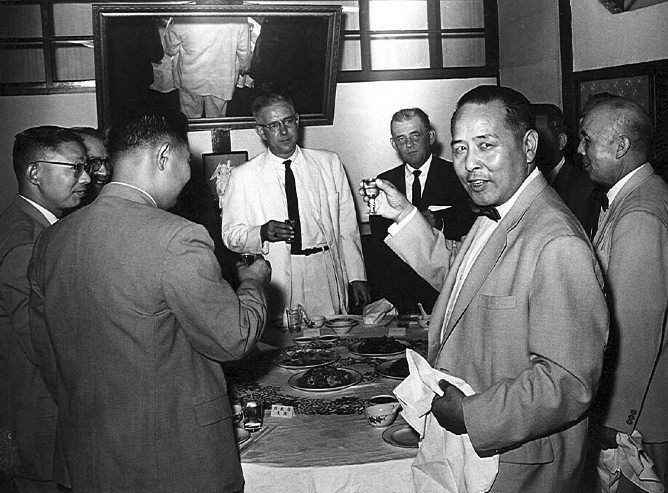
This picture is so obvious that it is hard to see, and not only because it appears here in black and white. It’s easily overlooked because even in context on my computer screen it looks like a standard-issue screensaver, rather than what it is; an image of the sky above my house. It was taken on a clear day two-and-a-half years ago by my son, then five years old, shortly after we moved in. We live in a rural area, near but outside the city, in the Angeles National Forest. The sky here is intense, visible, confident as it rises above the mountains around us, above the muted haze of the Los Angeles basin. Anyone glancing at my screen would think it’s the regular screensaver, but if you were to look carefully you would see the blue of this photograph has a richness that the flat blue of the screensaver lacks. When I see this image, which I do every single day as I sit in front of my computer, I do not see flat pixels. Through the eyes of my son, I see depth and tranquility. I see space and light.
Irene Tsatsos lives and works in Kagel Canyon, California.

This is a photograph of my father, Ralph Turner, taken in Taipei, Taiwan, circa 1964 by Kao Dah-Leo. It was taken at a banquet held in my father’s honor by the Central Police Academy where he was a visiting fulbright scholar teaching classes in criminology.
What interests me about the photograph is that my father’s back is reflected in the angled mirror hanging on the wall behind him. According to the principles of Feng Shui, mirrors are thought to channel good energy. My father’s location beneath the mirror identifies him as the guest of honor at the head of the table. In a culture where “face” assumes such importance, however, the inadvertent reflection of my father’s back would be an embarrassment.
I also read the decapitated, cut-off-at-the-knees reflection in the angled mirror as an accidental critique of the neo-colonial project in which my father, attired in a white linen tropical suit, was a participant.
Richard Turner, Artist
